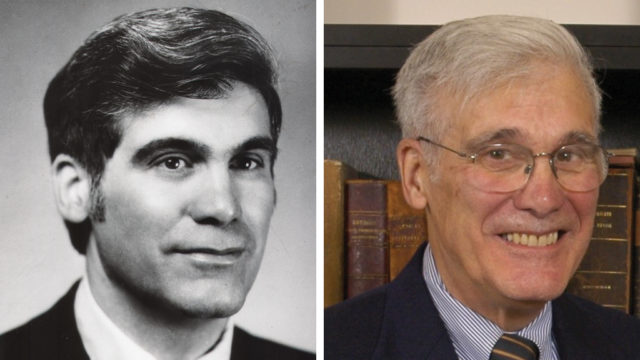
The former School of Pharmacy dean and longtime professor left an enduring impact
By Katie Gerhards
“There are students who have nightmare stories about their PhD experiences, but with George, it is the exact opposite — it was the best experience of their lives.”
Mark Sacchetti (MS ’90, PhD ’92) reflects on his time as a graduate student in the lab of George Zografi, professor emeritus and former dean of the University of Wisconsin–Madison School of Pharmacy. “The first thing he would tell you when you graduated is that you must call him by his first name,” says Sacchetti. “You became a friend and a colleague.”
Today, Zografi is renowned as one of the most celebrated and influential pharmaceutical scientists of his time, and Sacchetti is the scientific director of the School’s Zeeh Pharmaceutical Experiment Station, which Zografi helped create.
“Since I was a student in 1952, I have seen enormous change in the profession of pharmacy, as you can imagine, and it’s been great to watch it grow and to be a part of it,” says Zografi. “I feel very fortunate that my wife and I made the decision to come to Wisconsin — we love the university, we love the School of Pharmacy, and the many people we’ve interacted with along the way.”
In a special issue of Pharmaceutical Research dedicated to Zografi’s influence, the journal’s editor-in-chief, Vincent H.L. Lee (MS ’78, PhD ’79), wrote that “Professor Zografi is one of the leaders in modernizing pharmaceutical technology” and that his research has impacted numerous innovative concepts and methodologies relating to drug delivery systems.
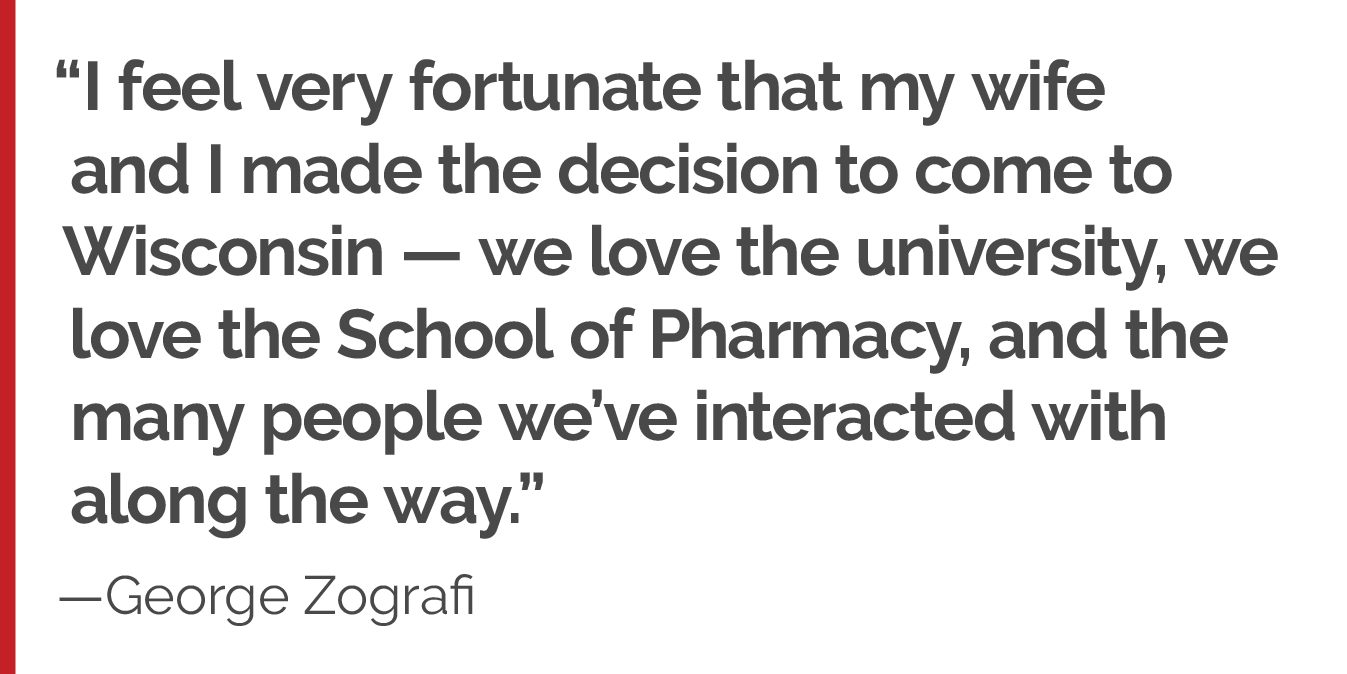
But perhaps his most lasting legacy is his commitment to education that will be carried forward by the pharmacists and pharmaceutical scientists he mentored and continues to influence.
“George is so well-respected not just by faculty at the School but all over the country for his reputation as a researcher and as a mentor to graduate students,” says Melvin Weinswig, former dean and professor emeritus of the School’s Division of Pharmacy Professional Development. “He was always there to help the younger faculty.”
From the east coast to Madison
Zografi grew up in New York. His father, an Albanian immigrant, had his own pharmacy, which gave him his first exposure to the profession. He worked in the family pharmacy even after his father’s death when Zografi was only 11 years old. When it came time to choose his own profession, he dove into pharmacy because he was familiar with it and he knew it would mean stable work to help him support his family in his father’s absence.
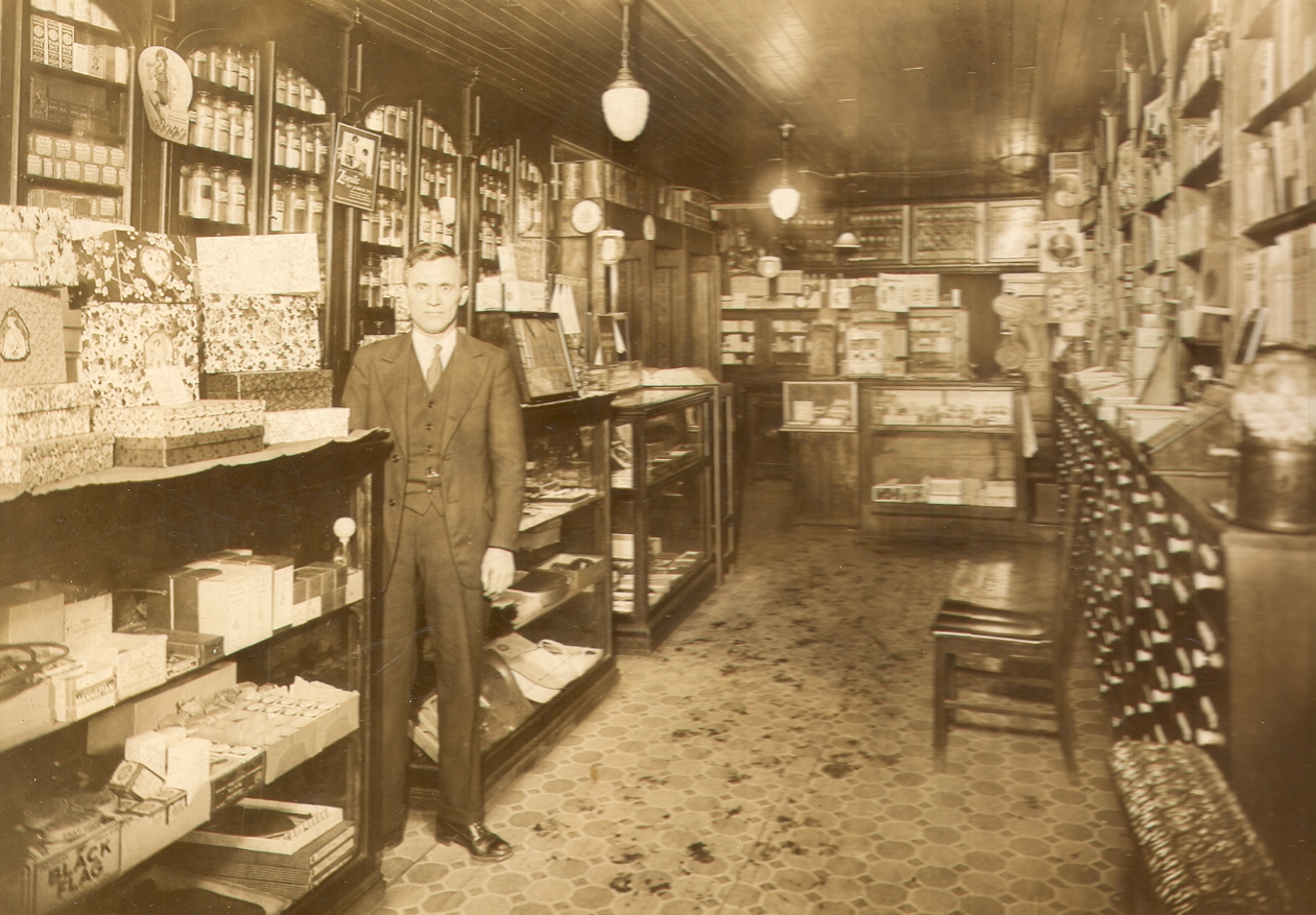
While an undergraduate pharmacy student, he was exposed to research, which transformed his budding career.
“My whole professional life has been put into motion in critical periods when certain people came into my life — young professors when I was an undergraduate, professors when I was in graduate school, people I met who were quick to encourage me,” Zografi says. “I think that’s a very important aspect of any professional or personal life. When I came to UW–Madison, I was very pleased that they were very good about mentoring and advising their students beyond the classroom.”
After earning his bachelor’s degree in pharmacy at Columbia University and his master’s and doctoral degrees at the University of Michigan, he joined the faculty of Columbia University from 1960 to 1964. He then became a faculty member at the University of Michigan until 1972. It was at Michigan in 1969 that he met David Perlman, then dean of the UW–Madison School of Pharmacy.
“We got to talking about changes that he was making at the School of Pharmacy, like building up the research program, and we hit it off and had a nice chat,” recalls Zografi. “A few months later, he invited me to consider joining the faculty at the School, and that’s how it began.”
He turned down the first invitation to the School and accepted a fellowship to spend the 1970–71 academic year on sabbatical, living and researching in the Netherlands. He, however, did accept the invitation to come to Madison as a visiting professor in April 1970, which gave him the opportunity to interact with the School’s faculty.
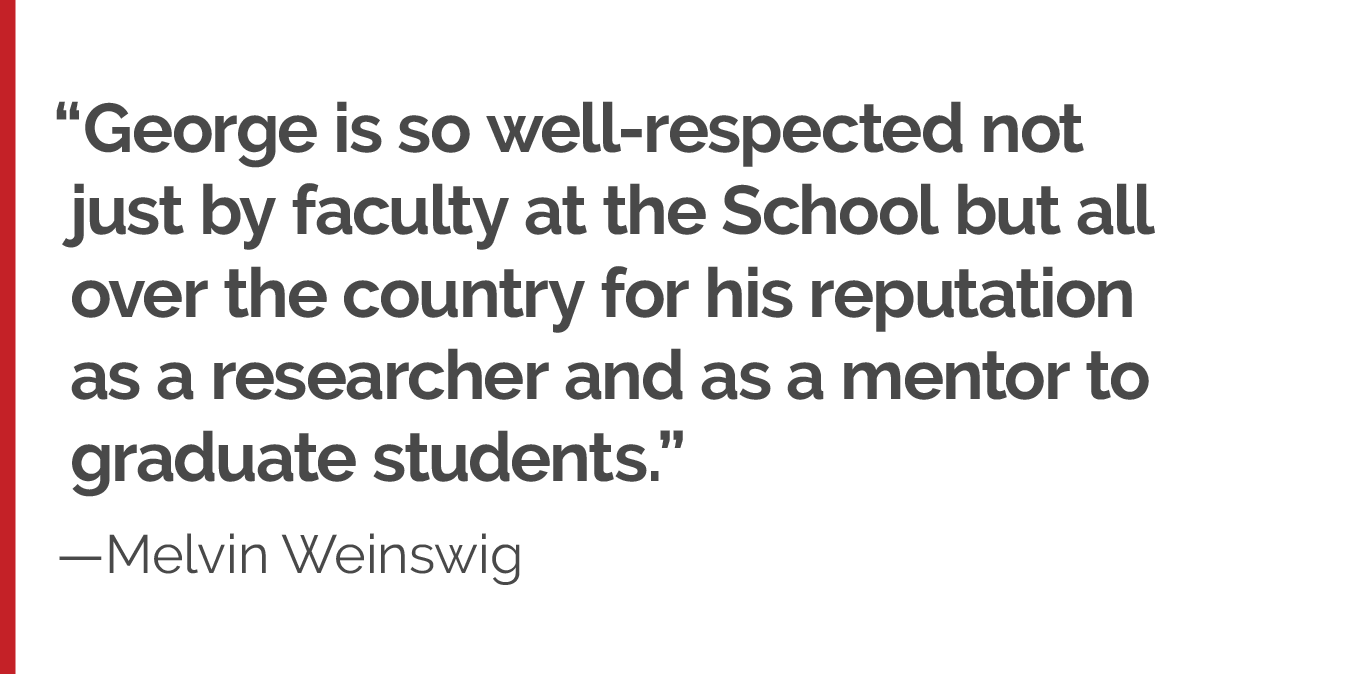
The decision was easy for him to make after the first time that he and his wife, Dorothy, visited the city together. “We just fell in love with Madison,” he says. He and his wife are “big city kids,” and Madison offered some amenities that Ann Arbor did not.
“We joked at the time that there was one of everything in Ann Arbor, but in Madison there was two of everything — one on the east side and one on the west side,” he laughs. “And the beauty of the campus, sitting right on Lake Mendota, blew us away.”
‘Change agent’ for pharmacy education
Just three years after Zografi joined the School of Pharmacy, Perlman stepped down as dean to return to research, and Zografi’s colleagues encouraged him to apply. At that time, the profession of pharmacy was beginning to expand beyond dispensing medications, and he saw an opportunity to grow the School’s programs to match that trend.
“The School had a wonderful reputation for creating top pharmacists and was a leader in both hospital and community pharmacy, but we needed to get more involved with clinical pharmacy issues,” says Zografi. “I came to UW–Madison because I was attracted to the research environment and the excellence of the pharmacy program and student body, and the chance to build onto that program was part of the reason that I rather unexpectedly took on the deanship.”
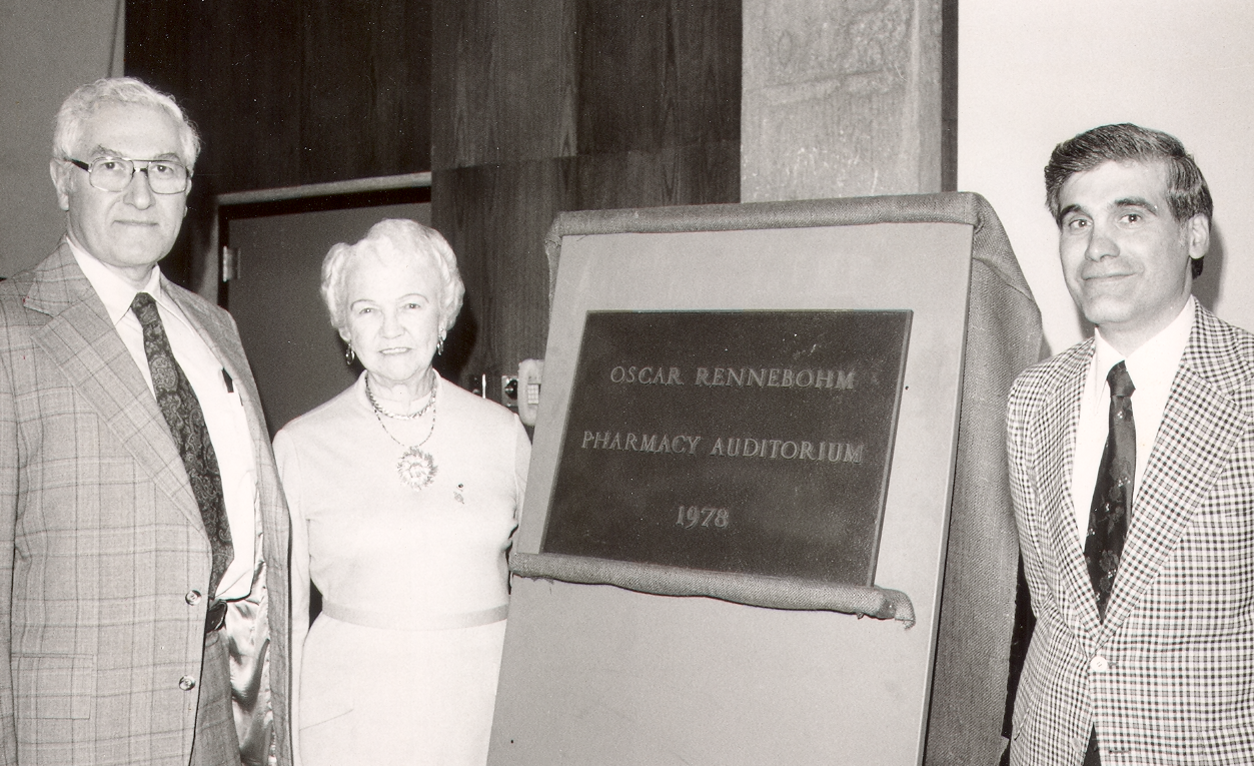
In the five years he served as UW–Madison School of Pharmacy dean, from 1975 to 1980, he oversaw the expansion of the School’s clinical pharmacy program, hiring new clinical faculty members, and developing partnerships with UW Health and other hospitals and pharmacies around the city to give pharmacy students clinical experiences and internships, which are now ingrained features of the PharmD program, and made curricular changes to augment those experiences with a classroom component.
“The School has a wonderful clinical program today, but at the time we had to start from scratch,” he says.
He also created the School’s first minority affairs program to foster the admission and development of qualified minority students, which lives on today as the Multicultural Affairs Program in Pharmacy.
“We received a grant from the federal government to enhance the program and develop leadership and support services,” says Zografi. “Because of that program, we had a higher percentage of minority students than any other school on campus. I’ve very proud of that, but I didn’t do it alone. We had a lot of good people helping.”
Despite his accomplishments as dean, his heart remained in research. On top of his administrative and leadership duties, he maintained a strong research program, complete with graduate students, a postdoctoral fellow, and a grant from the National Institutes of Health.
“I realized when I was approaching my fifth year as dean that I had to make a decision — either I was going to be a long-term dean, or I was going to go back to my research and teaching,” he says. “It was a very big decision, but I followed my passion.”
His tenure as dean might have been brief, but he felt he put the School on track for his successor, Gus Lemberger, and subsequent deans to bring it to where it is today. “I saw myself as a change agent,” he says.
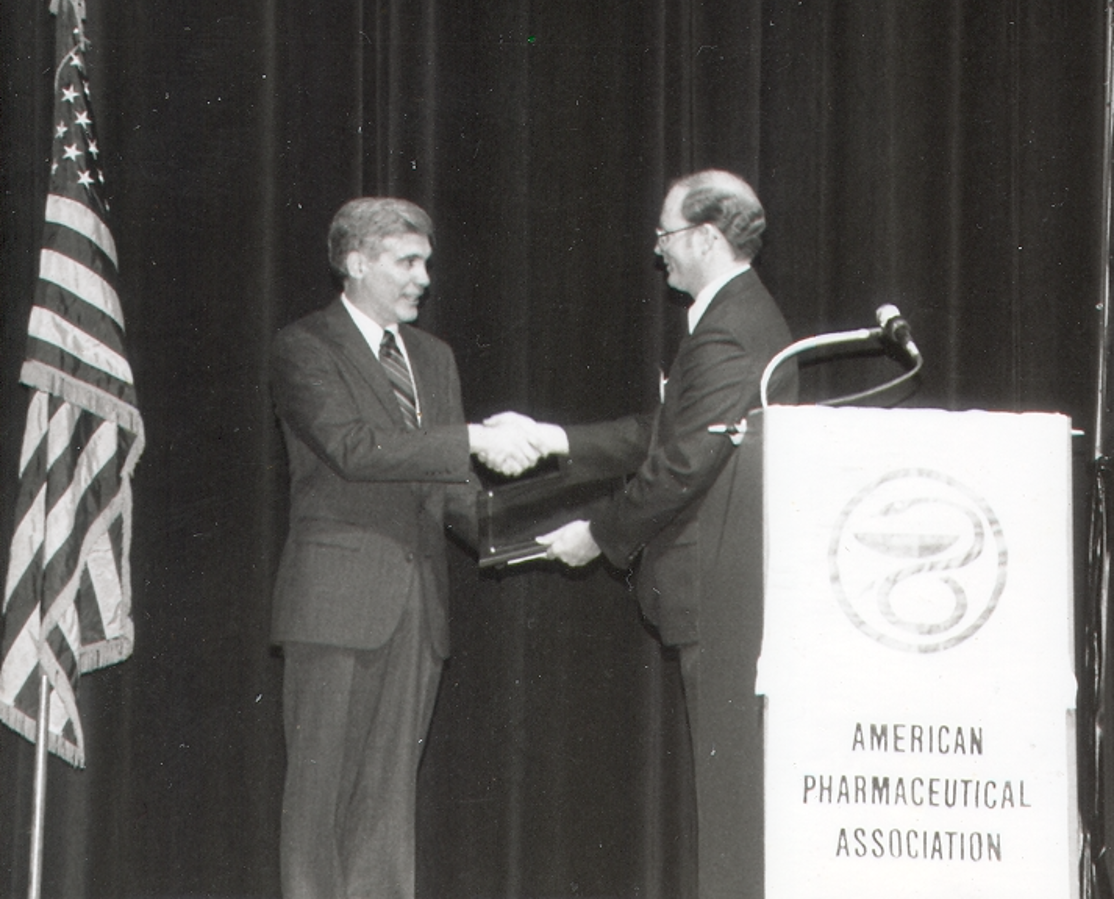
Aside from the changes he implemented as dean and his strong research program, Zografi made one more contribution to the School of Pharmacy before his retirement. For years, he and his colleagues had been discussing a laboratory in the School that could help faculty members bridge the gap between their drug discoveries and the market.
“Many faculty members across the campus were coming up with new chemical entities and new potential drugs, but they didn’t quite know what to do with them,” he says. “The Wisconsin Alumni Research Foundation helps faculty patent and license their drugs, but first the potential drugs need to be made into a dosage form that can be given to patients.”
To fill that need, Zografi, along with Weinswig and Professor Kenneth Connors, Zografi in 2003 resurrected the Pharmaceutical Experiment Station, which was first created in 1913 but ended operation in 1933 as a consequence of the Great Depression. The re-opened Station was named in honor of one of the generous donors, Lenor Zeeh (BS ’36), former vice president of Rennebohm Drug Stores in Madison, who made the new endeavor possible.
Lasting impact in mentorship
Zografi is a highly accomplished researcher, but he’s always enjoyed his lab work most when it is in balance with teaching.
“I enjoyed my contact with both undergraduate and graduate students in the classroom very much,” he says. “At the same time, I felt strongly that by doing research, I was mentally having fun while also helping to create knowledge that would help me in teaching.”
As prolific as he was as a researcher, he was just as revered for his commitment to pharmacy education. He served as president of AACP, a board member for the American Foundation of Pharmaceutical Education, and earned the 1989 Distinguished Educator Award from AACP — becoming the first-ever to receive both AACP’s Distinguished Educator and Volwiler awards.
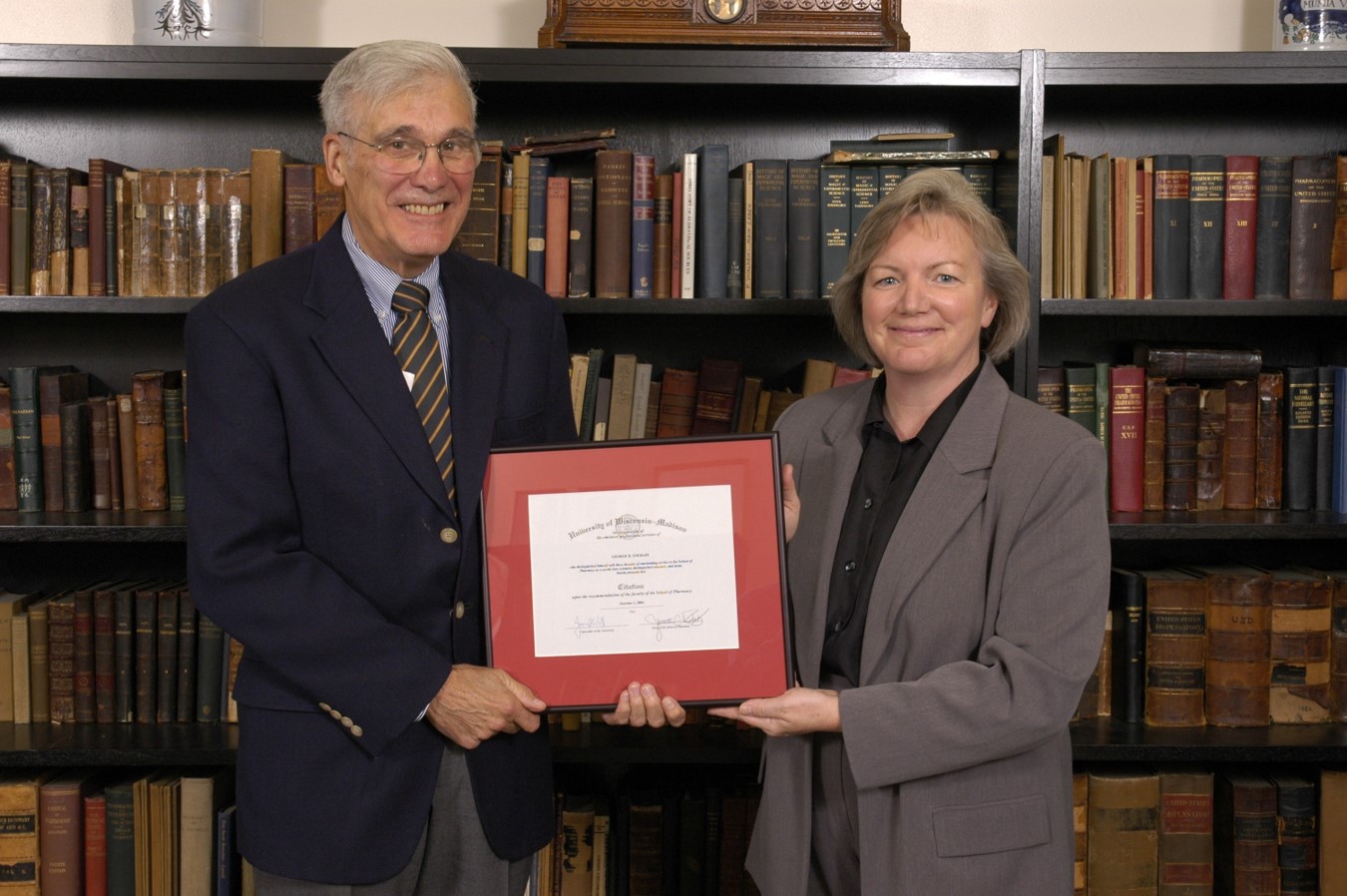
“George is one of the greatest researchers in the field of pharmaceutics as well as a great mentor,” says Sacchetti, whose career path was illuminated by Zografi. When Zografi decided to retire from the School and leave his post at the Zeeh Station, he reached out to Sacchetti, who had been working in the pharmaceutical industry for about 14 years, about an opportunity as scientific director.
“When he told me about the job, it was like a light bulb went on,” says Sacchetti. “I still tell him almost every time I see him that this has been the dream job for me.”
His commitment to both the Zeeh Station and the development of researchers carries on in the School, even after his 2006 retirement.
At the time of his retirement in 2006, he was approached about an idea to establish something in his name at the School. After some reflection, he decided it would be a good idea to have some funds available to enable graduate students interested in drug development to work in the Zeeh Pharmaceutical Experiment Station.
Donations poured in to create the George Zografi Educational Advancement Fund, which has supported a graduate student worker for the Zeeh Station every year since its creation. “I am very touched by the response I got from friends and students and colleagues, and I’m pleased that it’s being put to use in a way that encourages the development of young researchers,” he says.
Keeping in touch
“He left a big legacy and impression on all of our lives that the group of graduates from his lab is like a family,” says Sacchetti. “It’s easy to say something like that, but we plan reunions from time to time and have a distribution list set up so we can all stay in touch.”
Through the years, more than 50 graduate students went through Zografi’s lab, including accomplished individuals like Azita Saleki-Gerhardt (BS ’88, MS ’91, PhD ’93), Lynn Van Campen (MS ’79, PhD ’81), Eugene McNally (MS ’87, ’89), and Ibrahim Jalal (PhD ’78), who all became executives in the pharmaceutical industry.
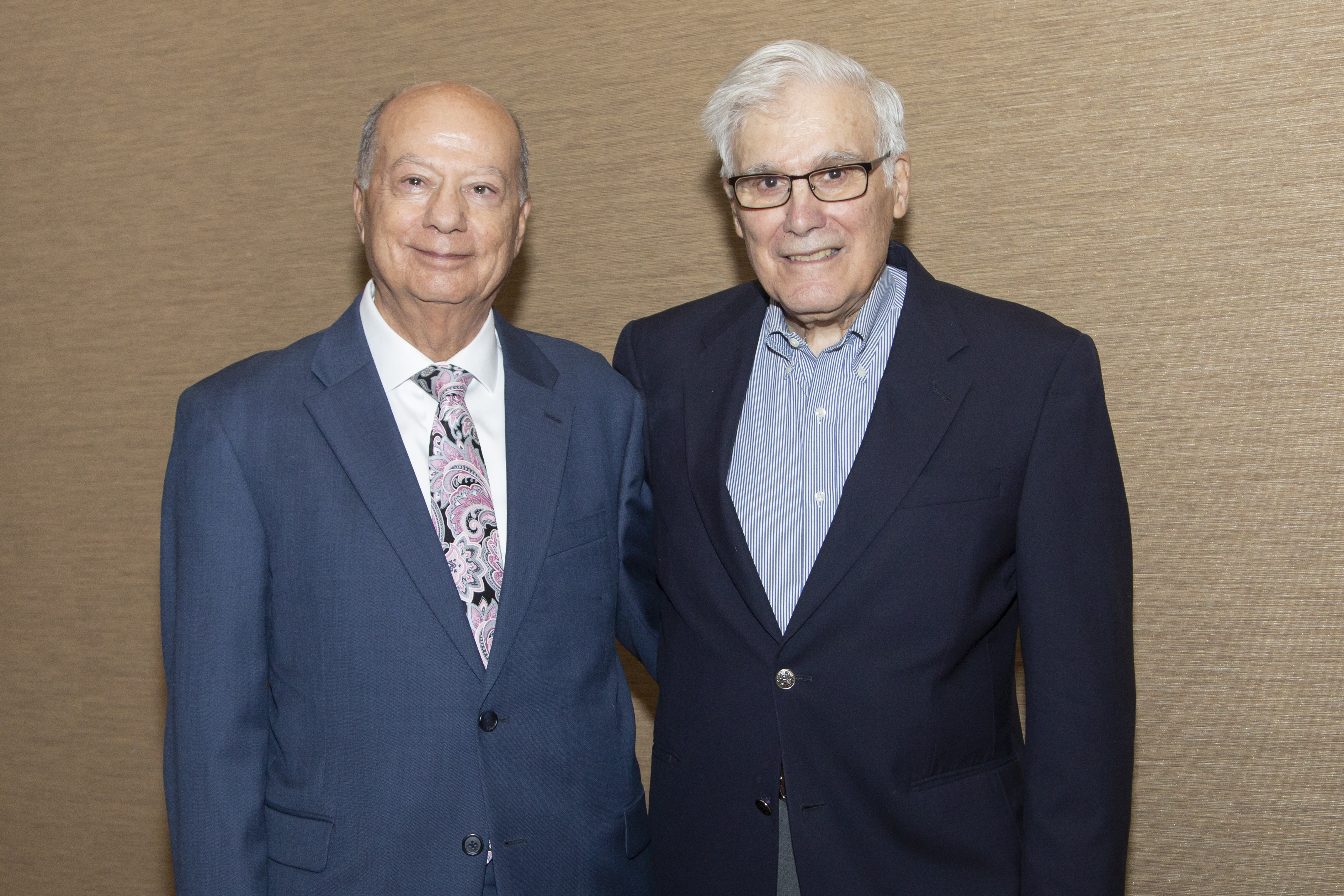
“When we held events, like the Land O’Lakes Conferences, people would always show up wanting to see George because they knew he was someone they could count on, someone who would mentor them and stay in touch after they graduated to give them information and suggestions to better their career,” says Weinswig. “Truly, his graduate students feel like he was a father figure to them because he was always there to help and advise — even if they weren’t his own graduate students.”
Although he’s been retired for more than a decade, Zografi still enjoys occasionally coming back to the School to interact with the faculty and attending the Graduate Student Awards reception to meet the recipient of the scholarship in his name.
“Life professionally was pretty intense,” he says, so now he is focusing on spending time with family, staying active indoors and out, and is an avid reader — “catching up on the classics” he missed while he was in the lab.
His mentoring, too, continues. He has maintained collaborations with younger scientists around the country and has written about a dozen reviews or commentaries on scientific topics.
“Some people are really good researchers, and others are excellent educators, but George has both,” says Sacchetti. “He is one of the best researchers in the field of pharmaceutics and a great mentor.”
Read more about the Zeeh Pharmaceutical Experiment Station and its recent partnership with UW Health.